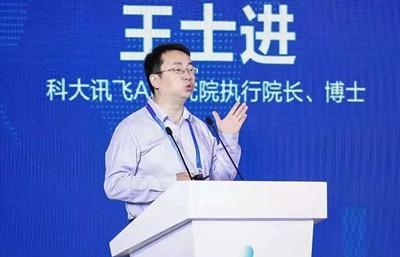Wang Shijin, vice president of iFlytek Academy
Updated: 2023-04-20
|chinadaily.com.cn

Wang Shijin gives a talk about the innovative products. [Photo/WeChat ID: iflytek-edu]
Wang Shijin, vice president of the iFlytek Academy, has tackled over 30 key problems that have not only guaranteed the smooth implementation of reforming the national college entrance examination and high school entrance exam, but have also effectively improved teaching effectiveness with related products serving over 40 million students annually.
In late February, Wang was one of 10 winners of the 25th Outstanding Youth Award for Achievement in Commercializing Scientific and Technological Advances, funded by the China Association for Science and Technology.
In 1998, he got into a special class for the gifted young at the University of Science and Technology of China. But studying there, this top student born in rural Anhui province could not attain high grades.
"Some of the students in the special class are talented and some have particularly high scores in provincial entrance exams," said Wang, who confessed that his overall performance was mediocre and he was more obsessed with playing games.
The turning point came in his fourth year of college. That year, Wang was looking for a laboratory for his undergraduate internship as required by the university, when he became excited by the man-machine speech communications laboratory run by Wang Renhua, a professor at the University of Science and Technology of China.
Wang was lucky enough to grab the chance but could hardly keep up and complete relevant experimental tasks.
Faced with mounting frustration, Wang did not give up and worked really hard to advance his mathematical and programming knowledge, gradually improving his ability by completing one task after the other.
Later, Wang entered the Institute of Automation, at the Chinese Academy of Sciences, for his master's and doctoral degrees and joined the iFlytek group in 2011.
The AI products developed by Wang can relieve teachers of 50-90 percent of the stress of grading assignments, serving more than 40 million students each year. Currently, some 20,000 schools are using the products.
